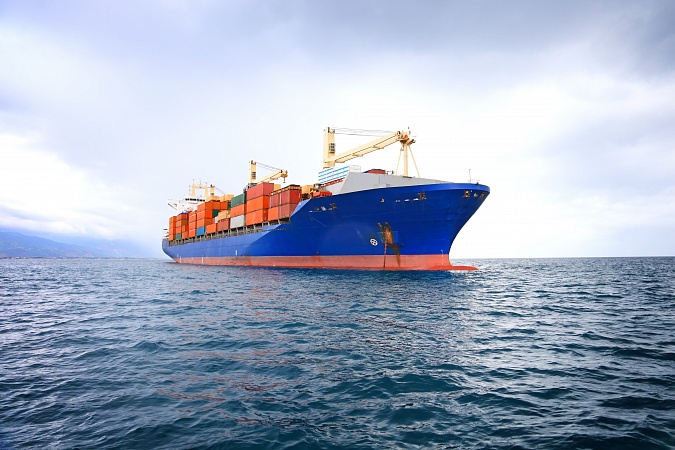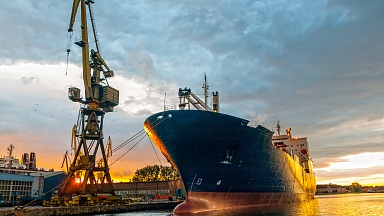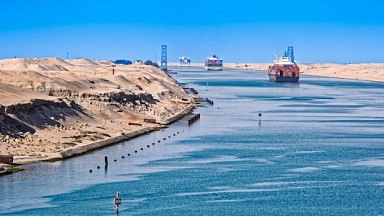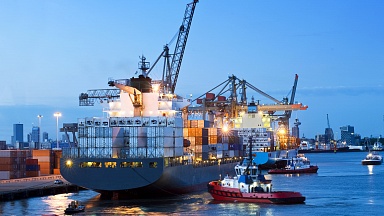Maersk CEO Soren Skou expects the strong demand for ocean freight to be maintained well into next year while also underlining that the normalisation of the market remains quite some way off.
«What we’re saying to the market is that we expect our fourth quarter to be more or less in line with our third quarter and that we expect the first quarter (2022) — which is pretty much as far out as we can see in our booking data — to be in line with the third and the fourth quarter. We will provide guidance on 2022 (full year outlook) when we usually do that, in February (next year), but for now, there’s plenty of demand from our customers,» he told Bloomberg TV in an interview.
On the current congestion at ports, Skou said: «Globally, the industry has around 300 ships waiting outside various ports — mostly Los Angeles, around 80 ships, but we also have congestion in the UK, at Felixstowe, in China and a number of other locations — which is really driven not by lack of shipping capacity but by labour in the ports, and in particular, in the US and UK, by a lack of truckers to pull containers away from the port. So, the ports are being clogged up, and we cannot discharge as many containers as we would like, as fast as we would like.»
Consumer and inventory demand
Asked whether the market was showing any signs of ‘normalisation’, Skou replied: «We have a situation right now where there’s very, very strong demand, driven by consumer demand — first and foremost, by American consumer demand but certainly also strong demand in Europe. On top of that, we have very low inventories around the supply chain.
«So, our customers are doing two things at the same time. They’re trying to meet strong consumer demand, but they’re also trying to stock up to increase their inventories. And that’s what’s driving the very strong demand for transportation right now,» he told Bloomberg TV.
Asked about the investment in additional capacity in the sector and whether he feared an over-capacity scenario developing, Skou noted: «The current ship capacity under construction is equal to around 23% of the existing capacity, and that will be delivered over the next three and a half years. That’s sufficient to meet the expected growth in demand.
Congestion-fuelled constraints
«As I said, the issue is not really lack of ship capacity. The issue is that the ship capacity is being used up waiting outside ports, and we need to solve the port problem or the labour problem in the ports and with the truckers in order for the supply chains to get better.»
As for the outlook for M&A in ocean shipping and whether Maersk would be playing a part in such activity, Skou said: "In the sector, there is probably room for one more round of consolidation. In the case of Maersk, it’s not a priority for us. We did an acquisition in 2017 of a German competitor and that gave us a size that we need to have to be competitive.
Ocean acquisitions not a priority
«We have a 17-18% market share of capacity today and that’s more than enough to have competitive unit costs. We would not have significant synergies from adding another 3, 4, or 5 percentage points of capacity. So, it (ocean shipping M&A) is not high in our priorities.
«We are focusing on growing on the landside of our business and have announced an acquisition in the logistics space so that we can provide the truly integrated logistics solutions to our customers.»



